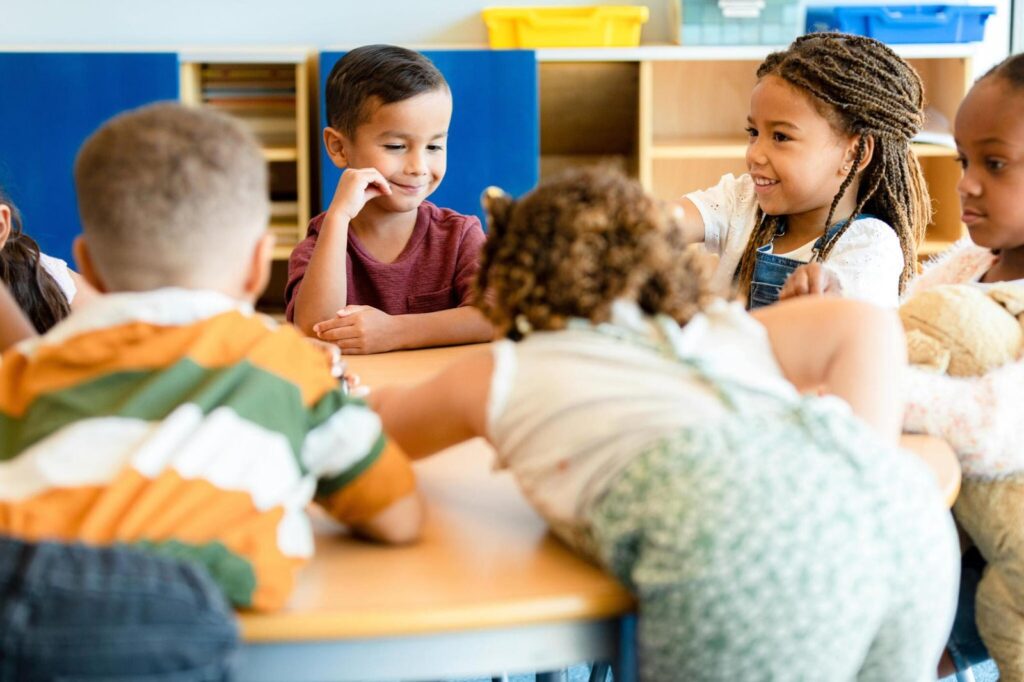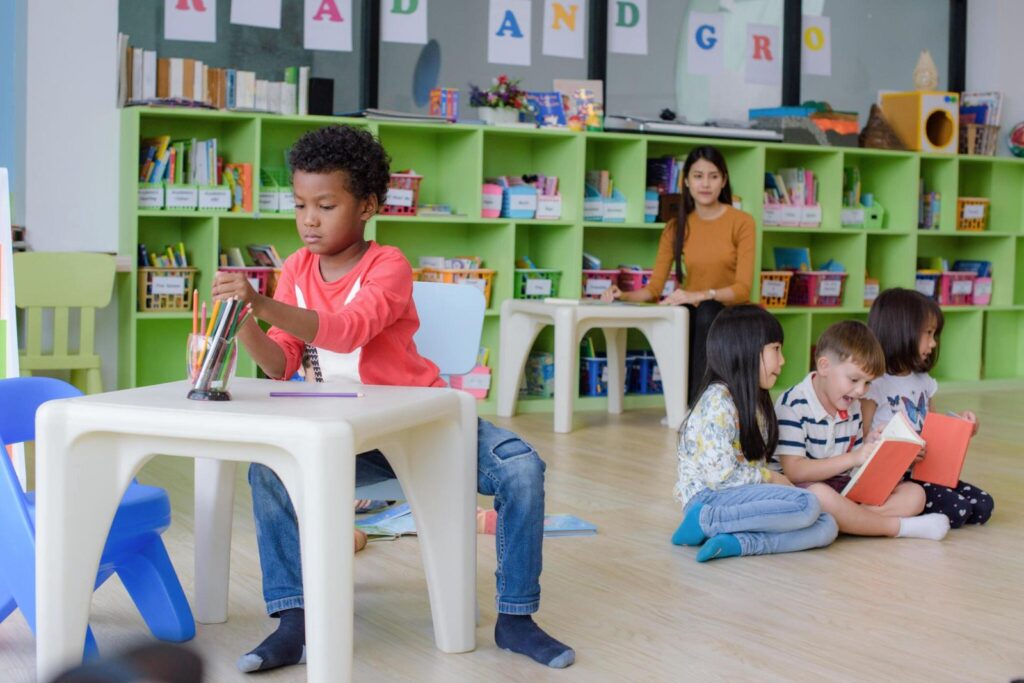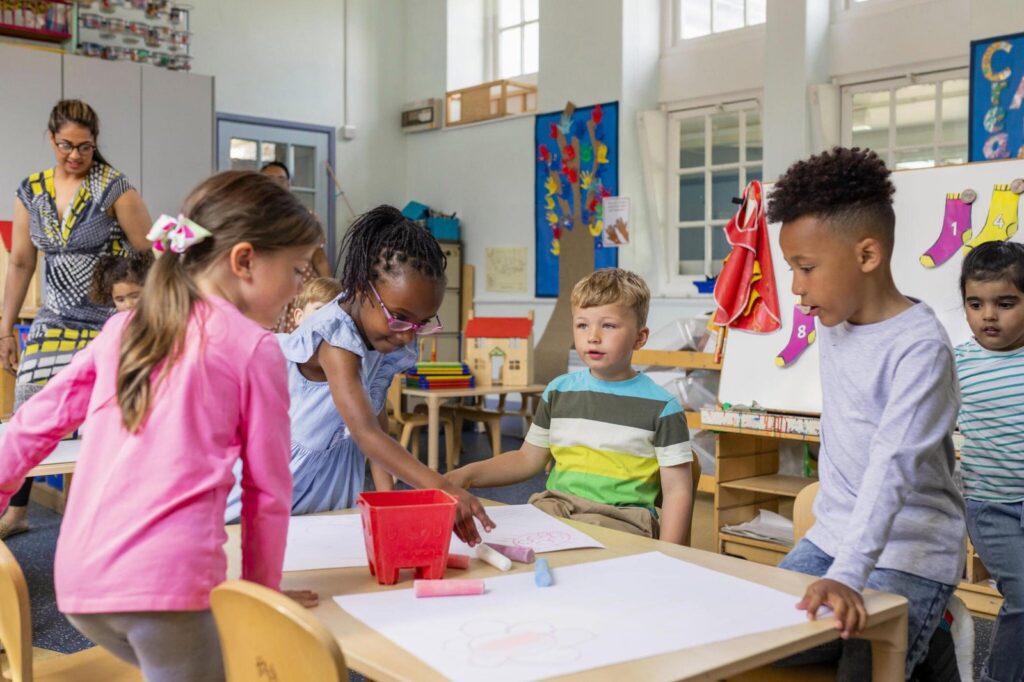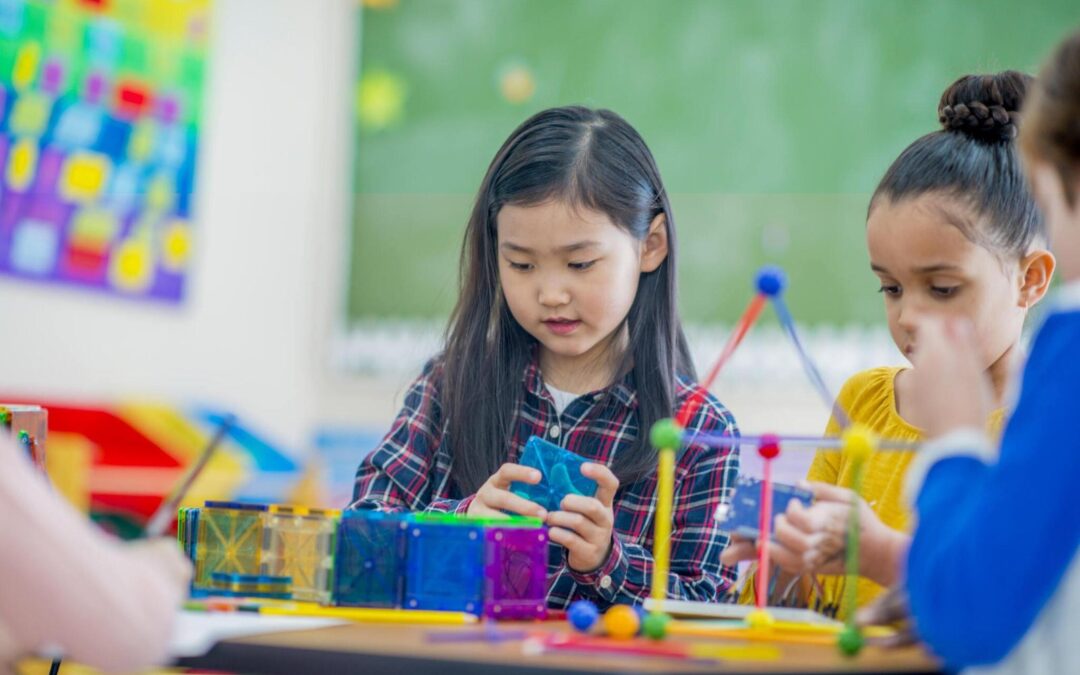As your child starts their education, choosing between preschool and pre-kindergarten can have a significant impact on their academic and personal development. Here’s a breakdown of what each option offers:
● Preschool: Suitable for children aged 2 to 4 years old, preschool serves as an introduction to structured learning. It focuses on playful activities that encourage exploration and interaction in a nurturing environment.
● Pre-kindergarten: Geared towards children aged 4 to 5 years old, pre-kindergarten builds on the foundations of preschool. It emphasizes more advanced learning skills and structured tasks to prepare children for kindergarten.
It’s important to make the right decision when it comes to your child’s early education. This choice can shape their attitude toward learning and their ability to socialize effectively.
According to Beibei Amigos, high-quality preschool and pre-kindergarten experiences go beyond just play. They lay the foundation for a lifetime of curiosity, resilience, and success.
Understanding Preschool, Pre-Kindergarten, and Their Role in a Child’s Education Journey
Preschool: A Foundation for Growth
Preschool serves as an entry point into the world of early childhood education for children typically aged 2 to 4 years. At this stage, we focus on:
● Playful Learning Experiences: Activities are designed to be engaging and fun, allowing children to explore and learn through play.
● Social Interaction: It provides a platform for young learners to interact with peers and develop social skills.
● Cognitive Development: Through various games and creative tasks, preschool fosters cognitive growth in a nurturing environment.
Pre-Kindergarten: Preparing for the Next Steps
Pre-kindergarten, on the other hand, is tailored for children aged 4 to 5 years old. This program goes a step further by incorporating:
● Advanced Learning Skills: Children engage in more structured activities that promote critical thinking and problem-solving.
● School Readiness: Pre-K sets the groundwork for academic concepts, preparing kids for the transition to kindergarten.
● Structured Activities: While still fostering a love for learning, pre-K introduces children to a more organized routine, mirroring future classroom settings.
Both preschool and pre-kindergarten play pivotal roles in shaping a child’s formative years. They provide essential stepping stones towards academic success and holistic development. The experiences gained here lay the foundation for lifelong learning and adaptability.
For parents seeking top-quality preschool programs that offer immersive learning experiences in Phoenix, Beibeiamigos stands out as a leading choice. With its focus on bilingual education and diverse daycare options, Beibeiamigos offers an exceptional preschool experience that nurtures growth and development in young children.
Distinguishing Between Preschool and Pre-Kindergarten: Key Differences You Should Know

When deciding between preschool and pre-kindergarten for your child, understanding the key differences is essential. These differences not only influence the type of learning and social environment your child will be in but also how they will transition to subsequent educational phases.
Age Range
● Preschool: Typically caters to children aged 2 to 4 years old.
● Pre-Kindergarten: Often designed for children who are 4 to 5 years old.
The age range is a primary factor as it dictates the developmental stage of the children and therefore, the approach taken by educators. In preschool, activities are crafted with toddlers in mind, focusing on gross motor skills and basic socialization. Conversely, pre-kindergarten targets older preschoolers ready for more complex tasks.
Curriculum Focus
● Preschool: Emphasizes play-based learning that nurtures imagination and social skills.
● Pre-Kindergarten: Builds upon preschool foundations with a focus on structured activities that develop academic readiness.
For example, a preschool might offer a sandbox activity to teach about textures and encourage cooperative play. In contrast, a pre-kindergarten class might use a story-time session to introduce new vocabulary and foster early literacy skills.
Length of Classes
Variations in program duration reflect the different objectives:
● Preschool classes may be shorter, acknowledging the younger children’s limited attention spans.
● Pre-kindergarten often extends class times to accommodate deeper learning experiences.
Pre-kindergarten programs may also provide more advanced learning opportunities like introductory math concepts or science experiments suitable for their age group.
While both programs aim to foster holistic development, recognizing these distinctions can help you align your choice with your child’s needs and readiness for kindergarten. Remember that these early years are crucial for setting a foundation in education, and selecting the right environment can make all the difference. If you’re exploring options beyond traditional settings, consider learning about unique features Montessori daycares in Phoenix offer.
Considering Pre-Kindergarten as a Bridge to Kindergarten
When it comes to your child’s education, it’s important to understand what it means for them to be ready for kindergarten. Kindergarten readiness refers to the skills and knowledge that children need toy transition from a less structured preschool environment to the more formal setting of kindergarten. And that’s where pre-kindergarten comes in.
How Pre-Kindergarten Helps Your Child Transition to Kindergarten
Pre-kindergarten acts as a bridge between preschool and kindergarten, preparing your child for this transition period. Here’s how:
1. Building on foundational skills: Pre-kindergarten takes the foundational skills learned in preschool and takes them to the next level with more advanced learning activities and structured routines.
2. Developing problem-solving skills: Through specially designed activities, children in pre-kindergarten are encouraged to think critically and solve problems on their own.
3. Nurturing social-emotional growth: The pre-kindergarten environment focuses on emotional maturity and social skills, which are crucial for navigating the social dynamics of kindergarten.
4. Introducing early academics: Pre-kindergarten also introduces children to early literacy and math concepts, giving them a head start in these areas before entering kindergarten.
Understanding the Difference Between Pre-Kindergarten and Kindergarten
It’s important to note that while both pre-kindergarten and kindergarten are essential parts of early childhood education, they have different goals:
● Pre-Kindergarten: This program is specifically designed to prepare children for the academic challenges they will face in kindergarten.
● Kindergarten: Once children enter kindergarten, the focus shifts towards further developing those skills within a more structured learning environment.
Choosing the Right Program for Toddlers
If you’re considering pre-kindergarten or any other early childhood education program for your toddler, it’s essential to choose wisely. One option to explore is a Montessori program for toddlers offered by Beibei Amigos. This type of program provides a nurturing environment, follows a well-structured curriculum, and focuses on the accreditation necessary for your child’s development.
Making the Right Choice: Factors to Consider When Deciding Between Preschool and Pre-Kindergarten

Choosing between preschool and pre-kindergarten for your child can be a daunting task. As parents, your primary goal is to make an informed decision based on your child’s individual needs.
1. Maturity Level
Some children may show early signs of maturity and readiness for a structured learning environment. If your child is comfortable with a routine, can handle transitions easily, and shows a thirst for knowledge, pre-kindergarten might be the right choice.
2. Learning Style
Observe how your child learns best. Do they thrive in play-based environments or do they prefer more structured activities? Assessing their learning style will help you determine if the casual nature of preschool or the more structured pre-kindergarten better suits them.
3. Social Development
Consider your child’s social skills. Are they ready to interact in larger groups and participate in team activities? Pre-kindergarten often provides more opportunities for social interaction compared to preschool.
4. Language Immersion Programs
Another important factor to consider is whether you want to expose your child to bilingual education in their early years. Research has shown that bilingualism offers numerous cognitive and cultural benefits. Exploring nearby elementary schools with language immersion programs could provide your child with a head start in their educational journey.
Looking at these factors will guide you in choosing between preschool or pre-kindergarten. Remember, each child is unique, making this decision a personal one that depends on your child’s developmental readiness.
Kindergarten Education in Phoenix: Overview of Schools and Importance of Selection
In the vibrant city of Phoenix, you’ll find a diverse range of educational opportunities for your little ones. Particularly, the landscape of kindergarten schools in Phoenix is marked by a mix of both public and private institutions, each offering unique approaches to early childhood education.
Public Kindergartens in Phoenix
Public kindergartens often follow a standardized curriculum, providing children with a balanced foundation across core subjects. They offer the advantage of being cost-effective and typically have larger class sizes.
Private Kindergartens in Phoenix
On the other hand, private kindergartens often present more flexibility in their teaching methods and curriculum. These schools are known for smaller class sizes, personalized attention, and an enriched learning environment.
One notable mention in the realm of private education is Montessori schools, which emphasize hands-on learning experiences tailored to each child’s pace. Some Montessori schools in Phoenix even offer bilingual education programs in Spanish and Mandarin, providing an added advantage.
The Importance of Choosing the Right Kindergarten School
Selecting a reputable kindergarten school is paramount for your child’s future education. The right school creates an environment conducive to developing a love for learning in your child. A strong kindergarten program lays the groundwork for positive attitudes toward schooling and impacts academic success in later years.
Factors to Consider When Choosing a Kindergarten School
Whether you opt for public or private education, consider factors like:
1. Classroom size
2. Teaching Philosophy
3. Diversity
4. Parent involvement
5. Additional services such as bilingual programs
Remember that the best choice will depend on what aligns with your family’s values and your child’s needs.
Beibeiamigos: Nurturing Your Child’s Potential Through Quality Preschool Education

Let’s take a closer look at Beibeiamigos, one of the top preschools in Phoenix, known for its commitment to providing excellent early childhood education.
At Beibeiamigos, we believe in unlocking every child’s potential. Our curriculum is designed to foster growth and development in a nurturing environment. Here are some key features that set us apart:
1. Play-based Learning
Our curriculum incorporates active learning through play. This approach not only captures children’s interest but also promotes their cognitive, physical, and emotional development.
2. Essential Academic Skills
Alongside playful activities, we prioritize building a strong foundation in academic skills. This balanced approach ensures that your child receives a comprehensive education.
3. Cultural Immersion
We offer Spanish immersion programs to help children thrive globally and foster cultural awareness from an early age.
Parents who are looking for a high-quality pre-kindergarten experience for their children should consider Beibei Amigos. Our renowned institution provides a stimulating environment where your child can grow academically and socially, with tailored education programs that allow them to thrive globally.
As parents, you always want the best for your children. So why not give them the best start to their education? Equip them with the tools they need to succeed both inside and outside the classroom by choosing Beibeiamigos today.
Explore the Beibeiamigos Advantage
Conclusion
The debate of preschool vs pre-kindergarten is more than just choosing an early education program—it’s about laying the foundation for your child’s future. Both preschool and pre-kindergarten serve crucial roles in shaping a child’s educational journey, each with its unique contributions to a child’s growth. Recognizing these early stages as more than mere preparation but as critical development phases, equips children with the skills they need to thrive academically and socially.
Parents are encouraged to consider Beibeiamigos Preschool in Phoenix, which stands out as an exceptional provider of early childhood education. The curriculum at Beibeiamigos blends play-based learning with foundational academic skills, creating an environment where children can explore their potential and build confidence.
To ensure your child receives the best start possible:
1. Take advantage of Beibeiamigos’ affordable daycare tuition rates in Phoenix, Arizona.
2. Discover why Beibeiamigos is rated as the top daycare for infants in Phoenix, offering nurturing care that supports your infant’s development.
Selecting the right preschool or pre-kindergarten program is a stepping stone toward future success, and Beibeiamigos is dedicated to being part of that pivotal journey.

